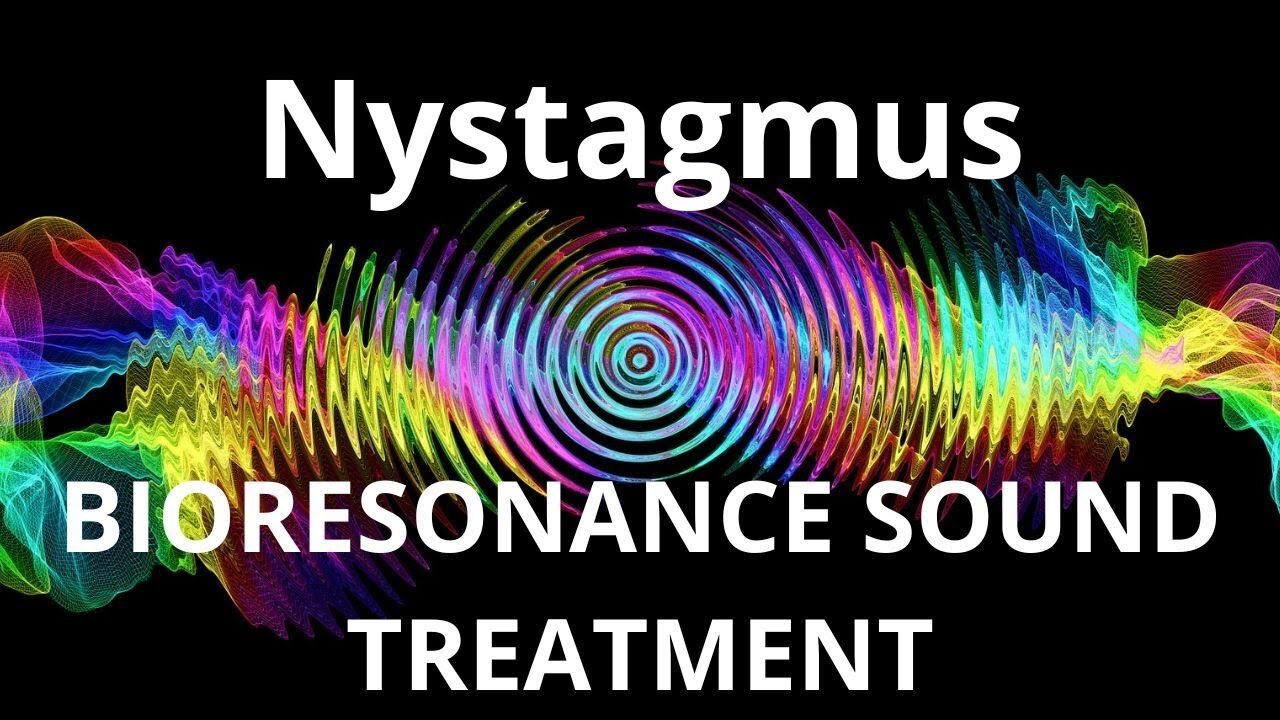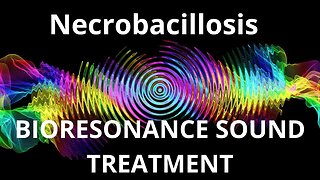Premium Only Content

Nystagmus_Sound therapy session_Sounds of nature
#bioresonance #healingenergy #healingfrequencies #resonantfrequencysoundtherapy, #complementarytreatment, #Nystagmus, #traditionalmedicine, #therapybenefits, #soundtherapy, #medicaltreatment
Nystagmus is a condition characterized by involuntary eye movements that can significantly impact vision and daily functioning. While traditional medicine offers various treatment options, the integration of adjunctive therapies such as resonant frequency sound therapy can provide additional benefits.
Resonant frequency sound therapy is a non-invasive approach that utilizes specific sound frequencies to promote healing and restore balance in the body. By applying these frequencies, it is believed that the body's natural vibrational energy can be stimulated, leading to various therapeutic effects.
When used alongside traditional medical treatments for nystagmus, resonant frequency sound therapy can provide a range of benefits. It works in harmony with conventional medicine to enhance treatment outcomes and improve the overall well-being of individuals with nystagmus.
Resonant frequency sound therapy has shown promise in improving visual stabilization and eye movement control in individuals with nystagmus. By targeting the neural pathways responsible for eye movements, specific sound frequencies can help reduce the intensity and frequency of involuntary eye movements. This therapy can potentially enhance visual acuity and improve overall visual function.
Individuals with nystagmus often experience eye fatigue and strain due to the constant movement of their eyes. Resonant frequency sound therapy can help alleviate these symptoms by promoting relaxation and reducing tension in the eye muscles. This therapy can potentially improve visual comfort and reduce eye-related discomfort.
Nystagmus can affect an individual's concentration and ability to focus on tasks. Resonant frequency sound therapy has been shown to have a positive impact on cognitive function by stimulating brain activity and enhancing neural connectivity. This therapy can potentially improve concentration and focus, allowing individuals with nystagmus to perform better in academic or professional settings.
Living with nystagmus can be emotionally challenging, leading to feelings of frustration, anxiety, and self-consciousness. Resonant frequency sound therapy can contribute to emotional well-being by inducing relaxation, reducing stress levels, and promoting a sense of calm. This therapy can provide emotional support and help individuals with nystagmus cope with the psychological aspects of their condition.
Conclusion:
Resonant frequency sound therapy, when used as a complementary treatment alongside traditional medicine, offers numerous benefits for individuals with nystagmus. By improving visual stabilization, reducing eye fatigue, enhancing concentration, and promoting emotional well-being, this therapy has the potential to greatly enhance the overall treatment outcomes and quality of life for those affected by nystagmus. As research in this field continues to advance, integrating resonant frequency sound therapy into the holistic management of nystagmus holds great promise for improving the lives of individuals living with this condition.
TO ACHIEVE A POSITIVE RESULT, DAILY LISTENING TO VIDEOS IS REQUIRED.
I wish you health and prosperity!
You can purchase unique medicines in my store:
https://store11998180.company.site/
You have the opportunity to support the channel:
https://destream.net/live/RadSiarAl/donate
-
 29:59
29:59
BIORESONANCE SOUND THERAPY
18 days agoNecrobacillosis _ Sound therapy session _ Sounds of nature
75 -
 LIVE
LIVE
Wendy Bell Radio
5 hours agoA Watershed Moment
9,345 watching -
 4:24
4:24
Bearing
5 hours agoCharlie Kirk ♥️
1.76K29 -
 LIVE
LIVE
The Mike Schwartz Show
1 hour agoTHE MIKE SCHWARTZ SHOW with DR. MICHAEL J SCHWARTZ 09-11-2025
2,728 watching -

Chicks On The Right
4 hours agoCharlie Kirk's assassination, the reaction, and where we all go from here.
30.7K14 -
 LIVE
LIVE
LFA TV
4 hours agoLFA TV ALL DAY STREAM - THURSDAY 9/11/25
5,693 watching -
 1:10:14
1:10:14
JULIE GREEN MINISTRIES
3 hours agoWHAT DO WE DO NOW?
101K259 -
 4:00:20
4:00:20
The Bubba Army
1 day agoCharlie Kirk's Killer On The Run - Bubba the Love Sponge® Show | 9/11/25
126K53 -
 16:58
16:58
Actual Justice Warrior
2 days agoBLM's Original HOAXER Killed By Black Crime
90.8K64 -
 2:04:21
2:04:21
Badlands Media
20 hours agoDevolution Power Hour Ep. 388: Assassination, Inflection Points, and the Battle Ahead
381K135